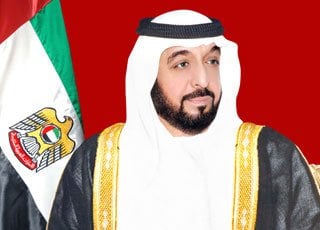By Mehmood-Ul-Hassan Khan

The United Arab Emirates is marching towards its 2nd Federal National Council (FNC) elections 2011, to be held on September 24. The public awareness is being rigorously carried out in different parts of the country by conducting purposeful press conferences, seminars and public gatherings. The general atmosphere is electrifying. Now, the FNC elections campaigns have gained momentum in all the seven emirates.
Middle East’s turmoil and UAE
Now, throughout Middle East people are struggling for achieving sustainable development, employment, better life with the promise to have education, shelter and health care and democracy, the UAE plans for further democratization is a right step towards right direction. It is hoped that FNC elections 2011 in the country would be turning point in its collective national drive of equitable and sustainable development and modernization.
Ecstatic Youth
The youth is taking keen interest in ongoing electoral campaigns of different candidates. The majority of the candidates fall between 30-35 years category that strive to brighten the future of the younger generation of the country in order to live up to his dreams and help contribute in making a better UAE society.” So, change is paramount and September 24 will steer in the next phase of political empowerment in the country because on Election Day greater numbers of Emiratis will caste their votes than before.
Main Topics
The main topic of election’s discussions/debates, public gatherings/meetings, face-to-face convincing gestures, and above all use of modern social networking apparatus are dominated by social affairs not confined to better education, sustainable development model, employment generation, housing and qualitative life for the citizens of the UAE.
Deliberations of Candidates
Many candidates have clear-cut manifestos for the upcoming FNC elections which is to upholding human capital, qualitative schooling system, improvement in higher education, knowledge based economy and Emiratisation. In order to win the sympathies of women voters, the women candidates are making promises to guarantee women’s rights as set up by the Constitution. The candidates are also assuring their right of education, better carrier, and health care in the days to come. Some candidates are projecting “Abu Dhabi 2030 Plan” as their manifestos. Others are focusing on better business and investments friendly policies for the people of UAE. Many contestants strongly urged for upgrading strategic infrastructure in the education sector because development of this sector will boost the growth of the country.
Historic Perspectives
The caravans of greater political participation by the people in decision making, real empowerment drive and freedom ethos envisioned in 2006 by conducting the first FNC elections. In first elections only 7,000 Emiratis were allowed to vote; in 2011, approximately 130,000 Emiratis will be enfranchised with voting rights. There were 7,757 Emiratis, 6,595 men and 1,162 women turned out to vote in 2006.
Greater Political Participation
Now, the Electoral College has become bigger than before which clearly corroborates the commitment of the UAE leadership to further promoting political participation and to empower the FNC at large. The huge success of the first elections in 2006 created strong awareness and knowledge among UAE nationals. It has helped in further highlighting of the UAE’s vision to expand the number of citizens in the electoral colleges.
Exceptional performance of the FNC
The performance of the FNC 2006 was successful. It discussed at least 33 important national issues and mega projects. The UAE government approved 70 draft law amendments introduced by the FNC, and responded to 200 questions raised by members of the FNC. The representation of women in the FNC 2006 was over 22 percent of the total members, reflecting the strong participation of women in the public and political spheres and the active role they play in shaping national dialogue. It passed a crucial public debt law, amended consumer protection legislation and rigorously worked on improving the country’s electrical grid and health services.
High Hopes with FNC elections (2011)
Now, it is hoped that the FNC elections (2011) would reflect an embryonic and extraordinary phase in the country. It would further strengthen the vision of President His Highness Sheikh Khalifa Bin Zayed Al Nahyan. Indubitably, since its independence 1971, the country has been candidly pursuing the true democratic norms. It would further strengthen political empowerment in the UAE. It would also fortify the social contract between the government and its people.
UAE Dynamic Society
UAE has a dynamic society which is politically motivated and empowered and the evolution of the FNC is fundamental to this long-term, sustainable economic and social growth. Political empowerment primarily advocates for building institutions that uphold transparency, accountability, sound policies and a balance of power that ensures protection against the abuse of power which has already been institutionalized in UAE. It is said in modern political science that an engaged populace is an empowered populace, so FNC elections 2011will engage members of society for achieving the desired goals.
Democratization Drive
The drive towards democratization has been very tricky and unevenly poised in most of the Western societies. Most of the countries took centuries to reach a universal suffrage, political empowerment, freedom of speech and the building of progressive institutions. Whereas, the UAE since, its inception 1971 has been sincerely trying to have these golden principles of democracy. The FNC elections 2011 are an important and forward step and great even for historic celebration. The Western highly projected notions about the Arab Spring could not shake the confidence and trust of the UAE leadership on its vigilant and vibrant youth. The majority of the candidates of FNC elections 2011 i.e. 35 percent are under 30 years old with large participation of women candidates.
The 40-member FNC currently has the authority to debate and amend laws, question ministers and discuss the annual federal budget. Half of the FNC’s members are appointed by the rulers of the seven emirates, while the other half are chosen by an electoral college.